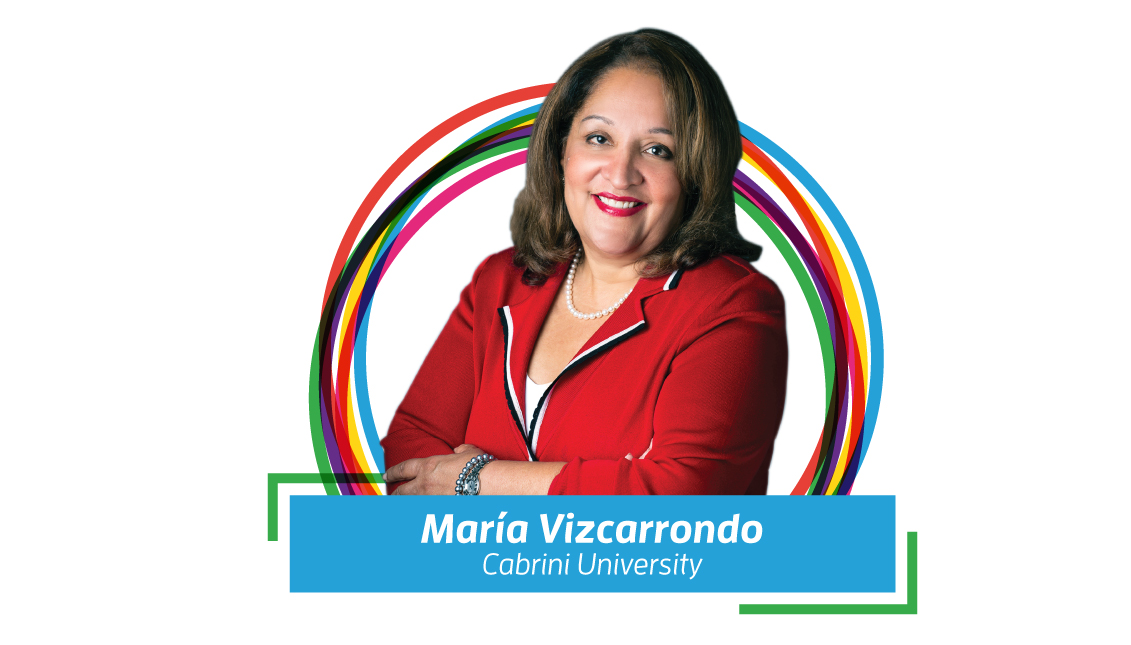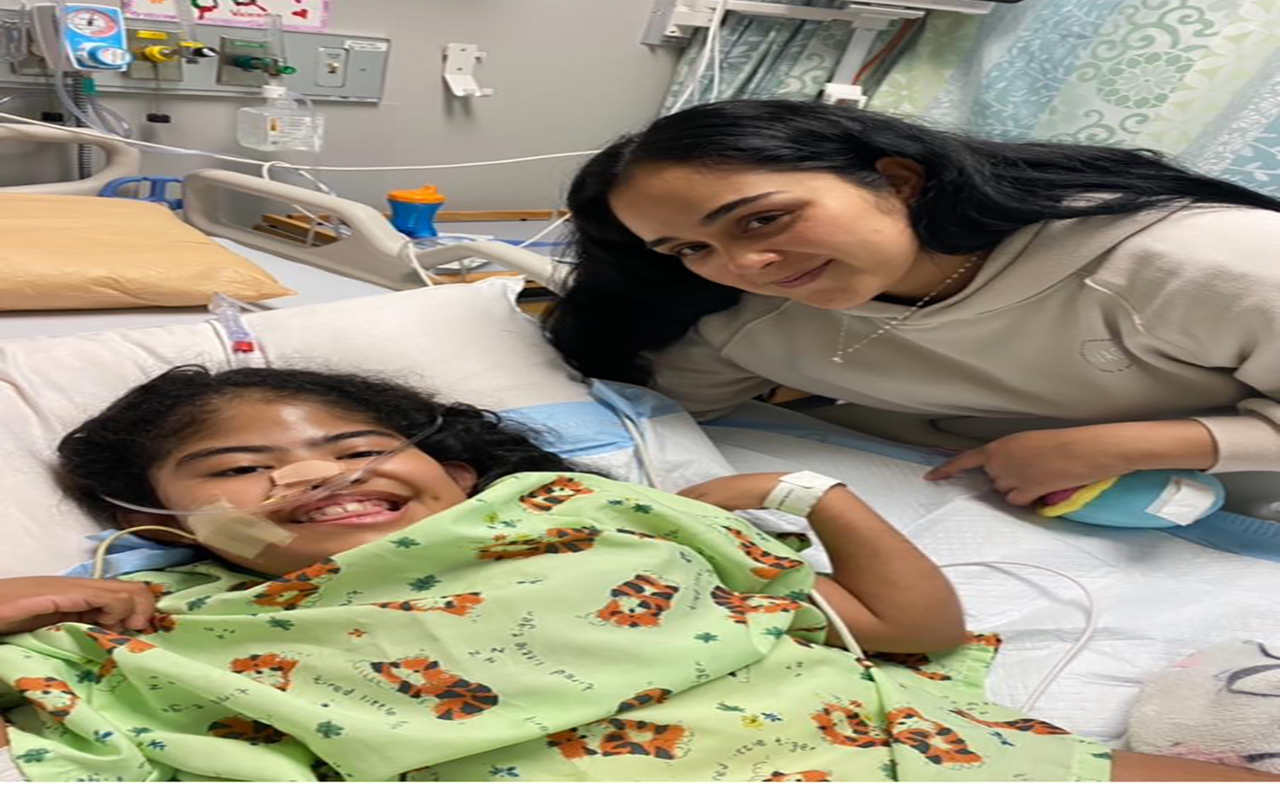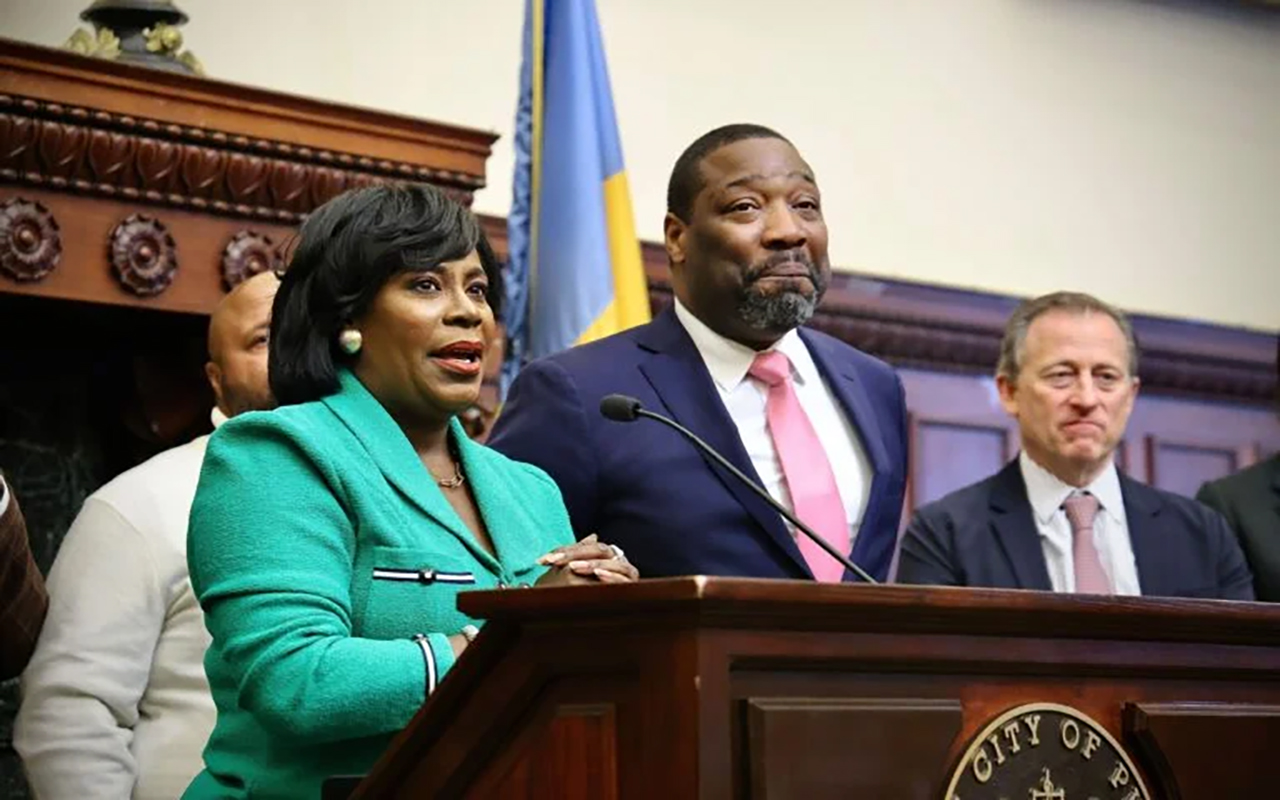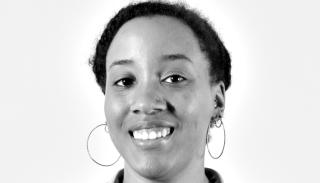
“Passion will carry you through the adversities that you will have to experience”
Maria Vizcarrondo is an honoree for the Women at the Top Awards.
Maria Vizcarrondo always knew that she wanted to serve her community. Growing up in East Harlem with a single mom and a loving grandmother, Vizcarrondo learned early on that you can't rest on your laurels. She knows that success was the result of hard work and good ethics, while always remembering she could never leave her community behind.
Grounded in her commitment to service in both her career and personal life, Vizcarrondo is the Inaugural Executive Director of the Nerney Leadership Institute at Cabrini University where she trains the next generation of people like her: individuals committed to leading and uplifting their communities.
A proud Nuyorican (first generation Puerto Rican born in NYC) with a giving heart to match, Vizcarrondo embodies the giving and kind nature that is often a neglected quality for those who reach the top. And yet, it is her generosity and kindness that makes her all the more impressive.
Learn more about her story and her views as follows below.
Tell us about your current career, how did you get there?
"Currently I’m the executive director of the Nerney Leadership Institute, which actually, I launched as a part of my coming to the university. I’m the inaugural director of the institute at Cabrini University. And so what bought me there was that at this point in my career, after 35 years of working in leadership roles in the non-profit and public sector, I felt that I really had an opportunity to share my years of experience in leadership in training the next generation of leaders (more than anything) to become servant leaders […] If I had to describe myself, I would say I’m a servant leader."
What's the most rewarding part of your career?
"Probably the most rewarding part - if I had to think of my entire career - has been that I’ve been blessed to be of service. Not as a volunteer. but as part of my career as a whole and very few people can say that they can do that full-time."
What was your dream job as a kid and why?
"I dreamt of being a doctor for sometime, mostly because it was a helping profession. But I knew if I wasn’t going to be a doctor, I had a sense that whatever I was going to do, I knew it was going to be work in a helping profession. Probably because I was raised in a single family household - I was raised by my mother and my grandmother in East Harlem. I’m a Nuyorican and while we were growing up, all I saw around my existence was my mother and my grandmother always helping people."
How have the women in your life shaped you?
"My mother always told me, "You count your value on what you do for others.' So it was already engrained in my DNA to be that way. […] I knew when I got to go to college and had that opportunity, I knew I would look at work that would not so much make me rich - because I didn’t think about that - but I wanted work that fulfilled me. And where I found that fulfillment and passion was going into areas of the social sciences and as a result, all the work that I’ve done in my whole career has been working in national organizations […] My first job as a leader was as director of ASPIRA in New Jersey, […] working at the United Way, […] and helping families either in crisis, by helping them build a safety net, or helping people advance from where they are. And so as I look at all of that, it’s all been about helping people, helping communities, and advancing people and Latinos in general."
Who were your mentors?
RELATED CONTENT
"My mother. I’ve never met anyone that had more compassion for people but had an amazing work ethic. We knew, especially as women, we always had to have a contingency plan; we had to make sure that we can take care of ourselves, that we should never wait for anybody to take care of us and that only could be accomplished by having a good work ethic. I learned my work ethics from my mother. [...] I also learned from her the importance of being tenacious because, especially in our days with young Latino families, there are so many adversities out there: poverty, neighborhoods where there is crime... so many things that can diverge you from a positive path that you’ll have to have a tremendous tenacity to stay on the straight and narrow. [...] Understand that failure is a lesson that should be able to encourage you to push further. [...] I really believe that people learn my example. I really believe in that saying, 'You walk the talk,' and that's what I try to do."
What woman currently inspires you and why?
"When I was coming up in leadership roles in non-profit, I also did a lot of work in advocacy and as a result, got involved in a lot of the political processes that occurred in Northern New Jersey so one of my early mentors was a woman by the name of Wynona Lipman […] She had this great class and grace about her but when she was on that senate floor with all those men, she let them know she meant business. And she never let anyone intimidate her. She always did her homework. And she always made sure that if she tried to get any legislation passed, she made sure she covered her basis in making that happen. So she was probably one of the most influential people for me in a leadership role. If you've talked to me more recently, I see a lot of my peers as people who inspire me. People like Sonia Sotomayor, a woman from my generation. It’s so inspiring to see another woman that came up in the inner cities of New York make it. And I’m inspired everyday when I look at some of the women at the university where I teach because I see women that are much more assured, that feel like they have purpose and direction - much more than I did at that age. And it’s great to see that. And the other thing is my two daughters really turned out to be amazing women. My one daughter is a physician, she got to be a doctor […] She continues to work in every opportunity she can to better communities in Boston. […] My younger daughter is a corporate executive in the pharmaceutical industry and there she was able to make a mark for herself in an area where men were mainly [dominated]. So I see them both as very strong, some women with vision. And more importantly, they’ve both turned out to be amazing mothers, raising children with that same work ethic, ethical values and ability to understand that we’re part of a universe and not people that live alone."
What does it meant to you to be a Latina in your industry? Do you find yourself to be the only woman or Latina in the room often?
"I’ve been the only Latina in the room, the only brown face in the room. What I realized is I had to make sure that what they saw was not only a woman that was very capable, well educated, well-versed and articulate but a woman that also brought a community, a culture with her that was also going to be shown as a full force in whatever I do." But María has not only been a role model in her area, she's also been a sort of beacon of hope for other Latinos that are coming through. "In my new role now [as Director of Nerney Leadership Institute], we have a tremendous president that has a real commitment to Latinos and we’ve seen tremendous growth that wasn’t there when I first started three years ago, not [for] any other reason but because it just wasn’t a major strategy for the university."
What do you think is the most significant barrier to female leadership?
“I think one of the main reasons there are still barriers is because, as women -whether Latina, white women or African-American women- we don’t necessarily speak up for ourselves enough. We may have an opinion, we think we may have a better way of doing something but we hesitate to present it. I'm not saying all women - I'm not like that- but a lot of women are, and I think that kind of keeps them from giving people the opportunity to hear what they have to offer or to say.
Then in other places, clearly there is still a feeling that men rule in certain sectors. When you look at it even in the higher education sector, only 4 percent of [campuses] - whether they are presidents or administrators - in higher education have Latinos and even a smaller portion of that are women.”
What career advice would your give to younger women?
"Looking beyond the barriers, whatever career you go into, make sure it’s something you are incredibly passionate about. Because that passion will carry you through the adversities that you will most likely have to experience. No one has an easy role building a career. But if you're passionate about what you are doing, you will not let the nay-sayers try to deter you from following that career, you will deal with any failure that comes before you and look at it as a lesson so you can do better next time. That is absolutely critical for women.
The other thing is you have to be authentic. You need to bring fully yourself to the table in any situation, and I think most important -especially for young people and our millennial sisters- is understanding that the best things come with time and that passion is absolutely critical. You have to give yourself the space to grow into opportunities.
For Latinas in particular, never ever compromise your roots of where you came from, recognize that that's part of what enriches you for who you are."
Any secret talent or hobby?
"Yes, I have a few. I'm a certified diver and I’m also a golfer. So one of the things I love to do is gather with friends and look for some exotic place to go diving. And the other thing is that I just love golfing, I'm not the greatest golfer in the world, but I love the game, just to be outdoors, challenge myself, and hopefully meet some interesting people that would be part of the game."
How about your community work?
“Community service to me is critical because if we are going to empower our community more of us have to be some of the faces that are making policy decisions, that are writing legislation, that are part of the process that influences our everyday lives. So that's been my contribution to the community overall and I look forward to doing some of that in Philadelphia as well.”
Learn more about the Women at the Top Awards here.











LEAVE A COMMENT: